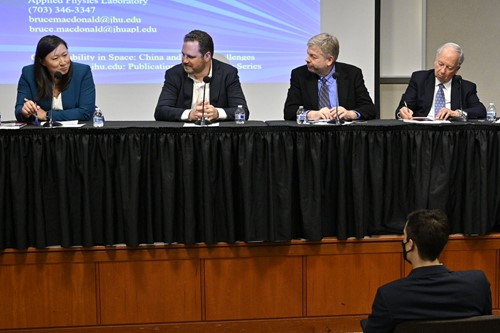How to Manage Crisis Stability in Space
Friday, October 28, 2022

Crisis stability in space remains a significant challenge for space sustainability. As more countries rely on space for national security purposes, it increases the incentive for other countries to develop counterspace capabilities of their own and the chances that space might be a flashpoint for future conflicts. To better understand these issues, SWF Washington Office Director Ms. Victoria Samson and Director of Program Planning Dr. Brian Weeden contributed to the second edition of "Crisis Stability in Space: China and Other Challenges," which was recently released by the Foreign Policy Institute of the Johns Hopkins University’s School of Advanced International Studies (SAIS). The report was edited by Bruce MacDonald and included contributions from multiple authors. Ms. Samson and Dr. Weeden contributed an overview of current global counterspace capabilities and Ms. Samson contributed a chapter on "International and Other Options to Strengthen Crisis Stability".
To celebrate the release of the report, Dr. Weeden participated in a panel discussion organized by SAIS to talk about the report's contents and crisis stability in general. Dr. Weeden was joined on the panel by Dr. Karl Mueller from the RAND Corporation and Ms. Kari Bingen from the Center for Strategic and International Studies (CSIS). The panel provided some highlights from the study, including why the space domain might have special concerns with crisis stability, why addressing this issue is critically important, and recommendations for moving forward.
View Publication
 Share
Share